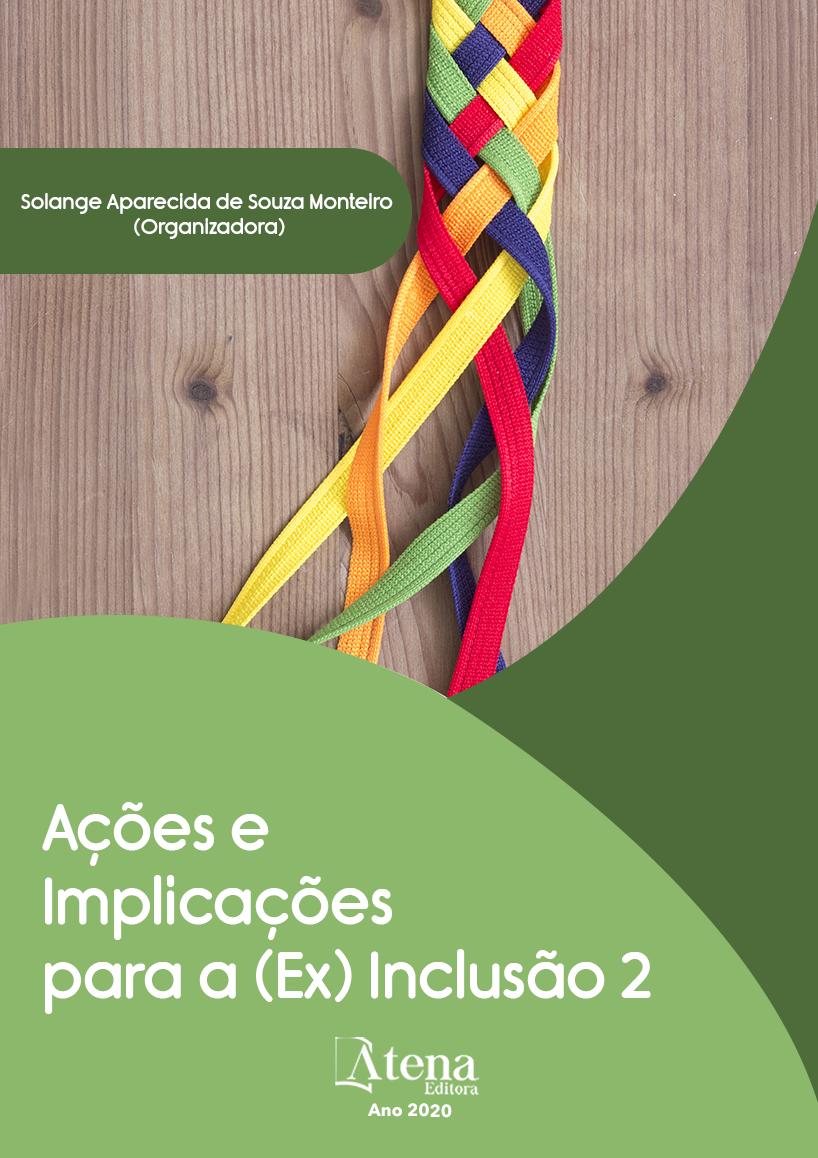
A INCLUSÃO ESCOLAR DE ALUNOS COM DEFICIÊNCIA INTELECTUAL NO ENSINO FUNDAMENTAL
Vivenciamos um momento em
que mundialmente se fala na inclusão escolar
de alunos com necessidades educacionais
especiais, na rede regular de ensino. A
legislação é explícita, quanto à obrigatoriedade
em acolher e matricular todos os alunos,
independentemente de suas necessidades
ou diferenças. Entretanto, não é suficiente
apenas esse acolhimento, mas que o aluno
com necessidades educacionais especiais
tenha condições efetivas de aprendizagem
e desenvolvimento de suas potencialidades.
Sendo assim, buscou-se no presente estudo
discutir sobre o processo de inclusão enfocando
quatro momentos: primeiro um breve percurso
histórico mostrando os diferentes tipos de
inclusão; em seguida, uma breve reflexão sobre
a terminologia “necessidades educacionais
especiais”; focamos, também, a função da
escola e o papel do professor no processo de
inclusão. Amparando-se nos pressupostos
da concepção histórico-crítica, focamos a
importância da relação entre professor/aluno
para o sucesso na aprendizagem, propondo
dessa forma, algumas sugestões sobre
“possíveis ações na prática do dia-a-dia”, aos
professores do ensino regular que atuam nas
escolas de Ensino Fundamental e Médio que no
decorrer do ano letivo se deparam com alunos
com necessidade especiais.
A INCLUSÃO ESCOLAR DE ALUNOS COM DEFICIÊNCIA INTELECTUAL NO ENSINO FUNDAMENTAL
-
DOI: 10.22533/at.ed.1712004032
-
Palavras-chave: Aprendizagem; Necessidades; Inclusão.
-
Keywords: Learning; Needs; Inclusion.
-
Abstract:
We are experiencing a moment
in which worldwide the inclusion of students
with special educational needs in the regular
school system is mentioned. The legislation
is explicit as to the obligation to host and
enroll all students, regardless of their needs
or differences. However, this reception is not
enough, but the student with special educational
needs has effective conditions of learning and
development of their potentialities. Thus, the
present study sought to discuss the inclusion
process focusing on four moments: first a brief
historical course showing the different types of inclusion; then a brief reflection on the
terminology “special educational needs”; We also focus on the role of the school and
the teacher’s role in the inclusion process. Based on the assumptions of the historicalcritical
conception, we focus on the importance of the teacher / student relationship for
success in learning, thus proposing some suggestions about “possible actions in daily
practice”, to the teaching teachers. regular students who work in elementary and high
schools who during the school year come across students with special needs.
-
Número de páginas: 15
- Eduardo Gonzaga Bett
- Edivaldo Lubavem Pereira


